Charles Laughton became an international star in his native England before coming to America where he became one of Hollywood's most popular and respected performers. Laughton made his New York stage debut in "Payment Deferred" (1931) and soon after won the Academy Award for Best Actor for his performance in "The Private Life of Henry VIII" (1933). Two years later, he delivered one of his most iconic roles, playing the cruel Captain Bligh in the excellent "Mutiny on the Bounty" (1935), and was brilliant as the deformed Quasimodo in "The Hunchback of Notre Dame" (1939).
After appearing in Hitchcock's "Jamaica Inn" (1939), Laughton dazzled in a variety of roles in films like "The Canterville Ghost" (1944), "Captain Kidd" (1945), "The Big Clock" (1948) and "The Man on the Eiffel Tower" (1949). He reprised Captain Kidd for "Abbott and Costello Meet Captain Kidd" (1952) and King Henry VIII for "Young Bess" (1953), before making his one and only film as a director, "The Night of the Hunter" (1955), which was dismissed by critics at the time but was later deemed a masterpiece. Laughton continued to deliver great performances in films like "Witness for the Prosecution" (1957), "Spartacus" (1960) and "Advise and Consent" (1962), but a long battle with kidney cancer slowed him down and ultimately took his life. For three decades, Laughton was a gifted performer who maintained a high level of popularity matched by few character actors of any era.
Born on July 1, 1899 in Scarborough, North Yorkshire, England, Laughton was raised by his father, Robert, a hotel keeper, and his mother, Eliza. He attended the Roman Catholic Stonyhurst College until 1915, when his parents sent him off to work at Claridges Hotel while World War I raged across Europe. Despite his parents wanting him to join the family business, Laughton showed no interest outside of earning money, which he spent quite a bit of at London theatres. He joined the army in 1917 when he was old enough, serving in the Huntingdonshire Cyclists before being sent to the Western Front in 1918.
It was there that Laughton came face to face with the horrors of war, things that he refused to talk about even decades later. Right before the armistice, Laughton was involved in a gas attack that burned the skin on his back and caused years of throat problems that jeopardized his early acting career. Meanwhile, he convalesced from his injuries, leaving the army in 1919 and returning home to resume his work at the family's hotel.
In order to fully heal, however, Laughton - whose desire to perform was rekindled while in the hospital - began acting in amateur theatre groups. When he was 27 years old, he was finally allowed by his family to attend the Royal Academy of Dramatic Art, where he made his first professional stage appearance at the Barnes Theatre in the comedy "The Government Inspector" (1926). From there, he landed roles in productions of Chekhov's "The Cherry Orchard" and "The Tree Sisters" before snagging the lead for the London premiere of Sean O'Casey's "The Silver Tassie" (1928). Though physically not a classic leading man, the portly Laughton won audiences over with his immense talent in productions of "Mr. Prohack," "Alibi," "Mr. Pickwick" and "Payment Deferred." About this time, he began appearing in films, making his debut with a small role opposite Gilda Gray and Anna May Wong in the showbiz drama "Piccadilly" (1929). Laughton went on to appear in two early British talkies, starring opposite Dorothy Gish in "Wolves" (1930) and playing a half-Asian drug smuggler in the crime drama "Down River" (1931).
After making his New York stage debut in 1931, Laughton began his Hollywood career with James Whales' "The Old Dark Horse" (1932) and playing Emperor Nero in Cecil B. DeMille's religious epic "The Sign of the Cross" (1932). Also that year, he appeared in the Paramount Pictures anthology film "If I Had a Million" (1932) and played Dr. Moreau in the controversial horror thriller "Island of Lost Souls" (1932), starring Bela Lugosi and Kathleen Burke. Returning to England, Laughton delivered his most venerable performance, playing a mutton-eating King Henry VIII in the classic biopic "The Private Life of Henry VIII" (1933). Not only did his exuberant performance earn him the Academy Award for Best Actor and turn him into an international star, but the film itself put the previously ignored British cinema on the map. In 1933, Laughton had given up the stage in favor of motion pictures and next starred opposite Carole Lombard in "White Woman" (1933). He went on to play the malevolent father of adult children living under his room in "The Barretts of Wimpole Street" (1934) and police inspector Javert in "Les Misérable" (1935).
At MGM, Laughton delivered one of his most famous performances in "Mutiny on the Bounty" (1935), portraying cruel taskmaster Captain William Bligh, who earns the enmity of his misfit crew aboard the U.S.S. Bounty by dispensing discipline through repeated lashings and rationing of food. His brilliant performance as the despicable Bligh opposite Clark Gable's Fletcher Christian earned Laughton an Academy Award nomination for Best Actor. After starring in the comedy "Ruggles of Red Rap" (1935), he had a valiant turn as Dutch artist Rembrandt van Rijn in "Rembrandt" (1936), an interesting but failed biopic about the famed 17th century painter. He next starred opposite fellow Brits Vivian Leigh and Rex Harrison in "St. Martin's Lane" (1938), before starring in Alfred Hitchcock's last British picture, "Jamaica Inn" (1939), where he managed to outsize Hitchcock in terms of ego by demanding that his minor role be expanded into a major one. From there, Laughton had yet another iconic performance, movingly playing the grotesquely deformed Quasimodo to Maureen O'Hara's Esmeralda in "The Hunchback of Notre Dame" (1939), arguably the best adaptation of Victor Hugo's novel. Laughton reunited with Lombard for the marriage drama "They Knew What They Wanted" (1940), before playing the head of a family living in the South Seas in "The Tuttles of Tahiti" (1942) and an American admiral in the World War II drama "Stand By for Action" (1942).
Continuing to dazzle in a wide range of characters, Laughton was a cowardly schoolmaster in "This Land is Mine" (1943), an amiable but henpecked shopkeeper in "The Suspect" (1944), a feckless British aristocrat who fails to act on the field of battle in "The Canterville Ghost" (1944) and the titular "Captain Kidd" (1945), a seafaring adventure about the famed 17th century pirate. After playing a famed Broadway producer in the romantic comedy "Because of Him" (1946), Laughton somehow managed to get back into Hitchcock's good graces to appear in the Master's lesser film "The Paradine Case" (1947), starring Gregory Peck and Ann Todd. He next joined Ray Milland and Maureen O'Sullivan for the excellent but underrated film noir "The Big Clock" (1948). Laughton went on to play an analytical inspector on the trail of a clever murderer in "The Man on the Eiffel Tower" (1949) and was a member of a South American contraband racket in the good, but not great crime thriller "The Bribe" (1949). Following turns in the weepy drama "The Blue Veil" (1951) and opposite Boris Karloff in "The Strange Door" (1951), Laughton reprised the infamous Cpt. Kidd for the comedy "Abbott and Costello Meet Captain Kidd" (1952).
Still very much in demand after two decades on the screen, Laughton reprised his Oscar-winning role of King Henry VIII for "Young Bess" (1953), a history-bending drama about the early years of the woman (Jean Simmons) who would later become Queen Elizabeth I. In the religious epic "Salome" (1953), he portrayed a superstitious King Herod, before playing a domineering boot shop owner in David Lean's satirical comedy "Hobson's Choice" (1954). Meanwhile, Laughton - who had previously directed theater back in his stage days - decided to have a go at directing a feature, "The Night of the Hunter" (1955), which featured a mesmerizing performance by Robert Mitchum as a murderous convict posing as a preacher in order to win over his old cellmate's family in an effort to locate hidden money. Both a literal and proverbial parable on good and evil, "The Night of the Hunter" was a critical and box office flop at the time of release. Despite expert craftsmanship on the part of Laughton - including amazing an amazing underwater shot of a body - he never again directed another film. Still, the film grew substantially in stature over the years and was lauded by many contemporary critics as a masterpiece, with Mitchum delivering one of the best and most frightening performances of his career.
In Billy Wilder's excellent courtroom drama "Witness for the Prosecution" (1957), Laughton delivered an Oscar-nominated performance as a master barrister in ill health who battles his overbearing nurse (played by real-life wife Elsa Lanchester) in order to take on the case of a man (Tyrone Power) accused of murder. Returning to the stage in 1958, he directed and starred in "The Party," which co-starred Lanchester and Albert Finney. He made his final stage appearances as Bottom in "A Midsummer Night's Dream" (1959) and as "King Lear" (1959), both for the Shakespeare Memorial Theatre. Failing health prevented Laughton from working as prolifically has he had done in the past. In fact, he only appeared in two more films, playing an unscrupulous Roman senator who opts for suicide rather than capital punishment in Stanley Kubrick's historical epic "Spartacus" (1960) and a curmudgeonly Southern politician in Otto Preminger's political drama "Advise and Consent" (1962).
Later that year, on Dec. 15, 1962, Laughton died after a long battle with kidney cancer. He was 63 years old and left behind wife and frequent acting partner, Elsa Lanchester - best known for portraying "The Bride of Frankenstein" (1935) - whom he had married in 1929. But after his death, rumors persisted that Laughton was actually homosexual, which was seemingly confirmed by Lanchester in her autobiography. In fact, she claimed the reason they never had children together was because of Laughton's sexuality, though old friend Maureen O'Hara refuted the claim and insisted the reason was Lanchester's pair of abortions - one assumed to be from Laughton - she had undergone earlier in life and which rendered her unable to give birth. Though generally accepted by historians, Laughton's sexuality remained an open question.
By Shawn Dwyer

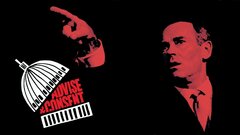

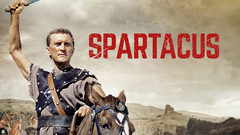

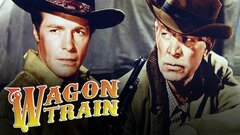
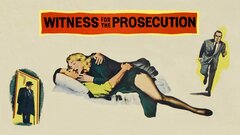

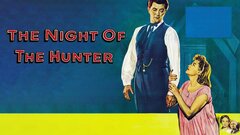


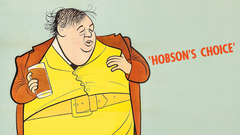
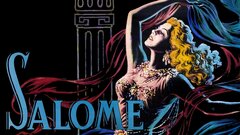
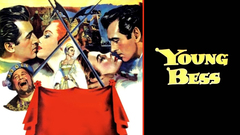


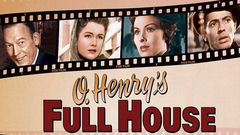






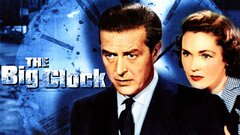





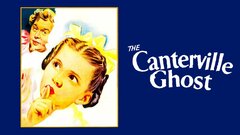

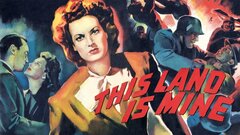







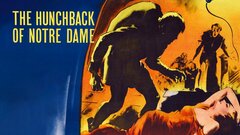








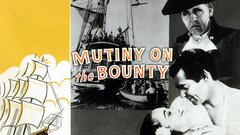



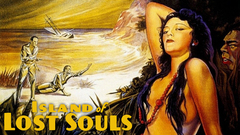
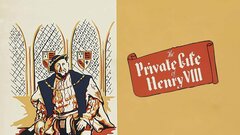



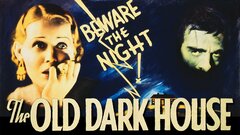





























































































































































































































































































































![O. HENRY'S FULL HOUSE, Marilyn Monroe, Charles Laughton [Cop and the Anthem], 1952, TM and Copyright (c) 20th Century-Fox Film Corp. All Rights Reserved](https://media.baselineresearch.com/images/114201/114201_small.jpg)






























